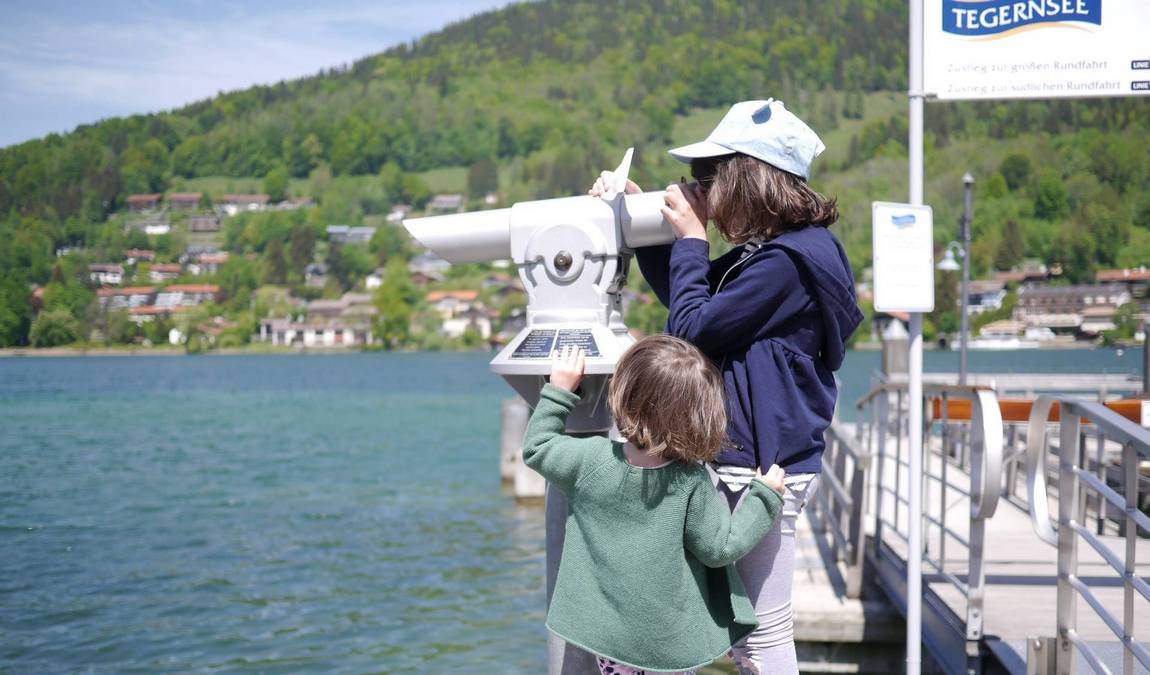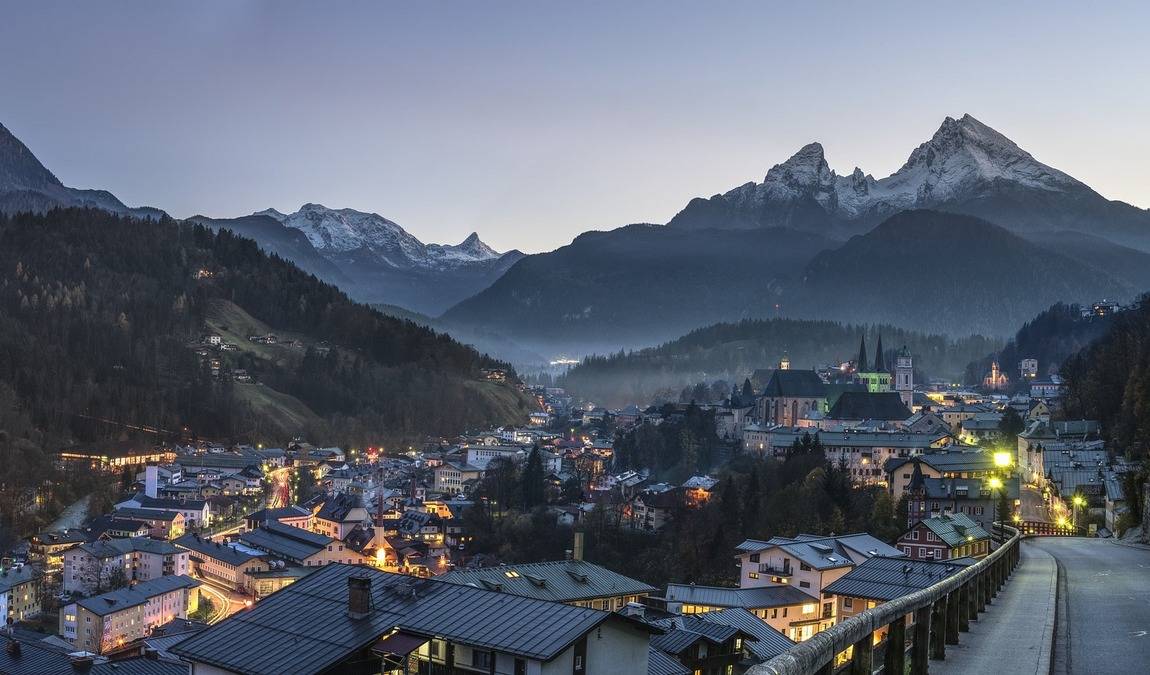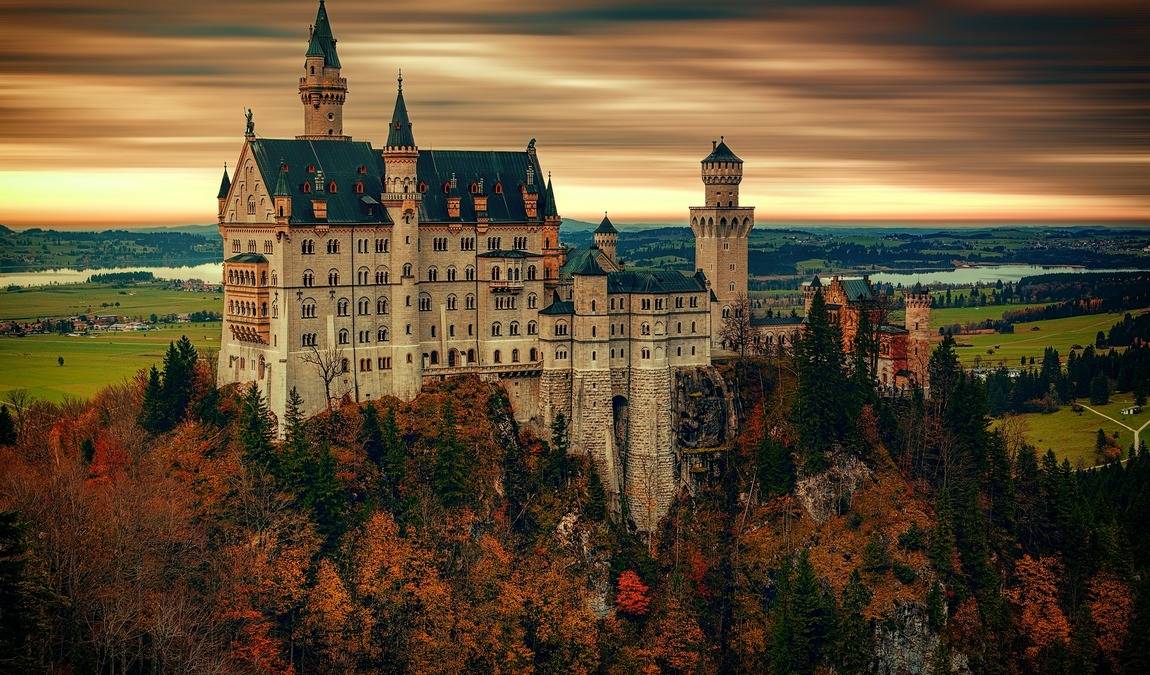Family holidays in Bavaria
Happiness, soulfulness, optimism and relaxation are not the most characteristic traits of the German people. That's what tourists think until they come to Bavaria on holiday with their children. But when they spend two or three days here, they suddenly notice that their mood has improved, that their fussiness has disappeared and that they have such an appetite that it is no problem to eat a pork leg. Even communication changes: instead of a polite "Guten Tag", you want to say "Grüß Gott" or even "Servus".
Read about museums, natural beauty, traditional food and other reasons to plan a family holiday in Bavaria in the Kidpassage overview.
Bavaria on the map of Germany
Bavaria is a federal state in Germany. It is located in the south-eastern and southern part of the country. Bavaria is the largest of the German states in terms of area and the second largest in terms of population after North Rhine-Westphalia. The state capital is Munich.
Bavaria shares its eastern border with the Czech Republic, its south-eastern and southern borders with Austria and a border with Switzerland at Lake Constance. Other German states bordering Bavaria include Hesse, Thuringia, Saxony and Baden-Württemberg.
Bavaria was once inhabited by Celtic tribes. Nowadays, the main ethnic groups with which the people of Bavaria identify are the Bavarians, the Swabians and the Franconians. Tourists, often fluent in German, are often taken aback when they hear the Bavarian dialect. There are dozens of dialects. In Munich you are likely to hear standard German.
Bavaria for Kids

To properly describe a holiday in Bavaria, it's useful to learn another local word: Gemutlichkeit. It literally means 'cosiness', but Bavarians use it to describe the simple pleasures of life — a nice day, good company and a fresh pint of beer.
People with children come to Bavaria for a variety of reasons. Some go to the Munich Pinakothek, some take their children to Legoland, some go skiing, some enjoy the peace and quiet of nature and some dream of seeing more medieval castles... and aren't these all ways to spend quality time with a child?
Bavaria also offers plenty of excitement for children. Amazing amusement parks, water parks, unusual playgrounds in parks. And, of course, the example set by their German peers, who can jump over puddles and roll around in the mud under the benevolent gaze of their parents.
It's also easy to take a baby on holiday. There's no problem finding baby food or a place to go for a walk, and the locals are comfortable with breastfeeding in the park or in a café.
Best time to travel
The tourist season in Bavaria is never interrupted for a single day, only the holiday region changes. In winter, tourists head for the mountains to ski, in spring to explore Munich, and throughout the summer it is beach season at the lakes.
In autumn, the main attraction is the famous Oktoberfest, or Wiesn in Bavarian, meaning 'meadow' in the local dialect.
Holidays with children are usually planned for the summer, during holidays and school holidays. This is a good reason to visit the best amusement parks and catch the swimming season in Bavaria. But it's also a busy time for visitors.
Winter is not just about skiing. The carnivals start in November, with the main event in the last week of February. December brings the magical Christmas markets, the Krampus race and the arrival of St Nicholas, as well as Nuremberg's ChristStollen and almond gingerbread.
It's best to visit Bavaria with a young child in May and September to spend time outdoors. The weather also has a direct influence on when it's best to visit Bavaria. The climate is generally favourable, but not without its surprises.
Weather and climate

Bavaria's climate is pleasant enough to travel in at any time of the year. In winter there is only frost in the mountains and in summer the heat does not last long.
Holidays in Bavaria are usually planned from May to September. In fact, towards the end of spring, the temperature rises to +15-20°C, although the nights are still cold, +2-10°C. The average daytime temperature during the summer months is +21-23°C, although thermometers can read +30°C and +16°C. Autumn brings cooler temperatures, but the weather is often pleasant until at least mid-September.
Although summer is considered the best time to holiday with children in Bavaria, you should be prepared for frequent rain. Munich experiences up to 10 days of rain a month, with even more in the mountains.
In October the thermometer only shows +7-14°C during the day; in November the air cools down to +2-7°C, with possible night frosts. The mountain season begins in December. While Munich is at +2°C and raining, the ski resorts are covered in snow and night temperatures can drop to -4-15°C. Throughout the winter, daytime temperatures in the highlands range from -4°C to +4°C, while in the capital the thermometer is usually above freezing.
In March, a warm breeze blows in from the Alps and, despite overcast skies, temperatures rise to +4-12°C. In April, the winter holiday season ends in Bavaria, even in the mountains.
Water temperature
It's not until mid-June that locals and tourists start asking about the water temperature in Bavaria. In May it's still too cold to swim, but in summer you can. Of course, the lakes don't get as warm as the southern seas, but it's nice to take a refreshing dip on a hot day. The average temperature of Chiemsee and the other lowland lakes is +22-23°C. The water is slightly cooler in the mountain lakes.
Getting Around

If you are planning to spend your holiday in one city or travelling point-to-point, you can rely on Bavaria's public transport system. It's convenient, punctual and, best of all, you can use the same Bayern-Ticket for urban and regional transport in Bavaria.
A day ticket costs from €27 for 1 person and from €36 to €63 for 2 to 5 people. This ticket allows unlimited travel on weekdays from 9:00 a.m. on the day of purchase until 3:00 a.m. the next day, and on weekends and public holidays from 0:00 a.m. on the day of purchase until 3:00 a.m. the next day. Considering that a short one-way trip in Munich costs €3 for one person, the savings with the Bayern-Ticket are considerable.
An adult who buys a single ticket can take up to 3 children aged 6-14 free of charge. Children under the age of 6 do not need to purchase a ticket.
The Bavarian ticket is valid within the state, but can also be used to travel to the nearest towns in neighbouring states, as well as to Salzburg and several Austrian mountain resorts.
The Deutsche Bahn website has information on services not covered by the Bavarian Ticket system. You can also choose between a day ticket and a night ticket.
If you want to travel without a timetable, it is better to hire a car. You can book a car before you arrive, or rent one at the airport or at your holiday destination. You will usually have to pay extra for child seats. Please note that in Germany, children under the age of twelve with a height of less than 150 cm must use a car seat with a seat belt when they are in a vehicle.
Driving in Bavaria is very pleasant as the roads are in excellent condition and there are plenty of rest areas along the way. There are no toll roads except for the Rossfeldpanoramastrasse, a hiking trail in the mountains. This costs around €9 for a car.
Food

Self-catering in Germany is easy to organise. Shops and markets sell almost all the usual products, the quality of which you can trust. The only rare items are special baby cheeses and yoghurts. Regular baby food is available in supermarkets and pharmacies.
Supermarkets are generally open from 7am-8am to 8pm-10pm. Discounters and hypermarkets close a little earlier. Shops are closed on Sundays.
For gourmets, Bavaria has its own bakeries, butchers, greengrocers and confectioners. These are the places where you can buy individually produced goods. So if quality is everything to you, buy your pastries at the bakeries.
Not everything on the restaurant menu is suitable for children who are getting used to adult food. However, bouillon, soup with meat dumplings, potato pancakes, mashed potatoes, pasta casserole, scrambled eggs with vegetables are all acceptable dishes that many children enjoy.
An older child can try all the famous German dishes, including the Bavarian Leberkäse. The pastry shops also have some very special Bavarian desserts: the delicious Prinzregententorte cake and the fruit-filled Rohrnudeln doughnuts dipped in vanilla cream. And how can you ignore the street food, especially the sausages? Weißwurst and Nürnberger Bratwurst, made from minced pork with marjoram, are very popular in Bavaria.
Things to do with Kids
A family holiday is always a compromise between excursions and entertainment, relaxation and dizzying activity. In Bavaria, there is no problem organising children's activities, and you only have to think about whether you can visit three large amusement parks, an incredible indoor water park, one of the best zoos in Europe, an aquarium... No, the list is not enough.

If you're just visiting Munich, two days is plenty of time to spend time with your child at Hellabrunn Zoo, Sea Life Aquarium and Märchenwald theme park. Märchenwald, as it is called, has a special atmosphere where children's favourite stories come to life and miracles happen around every corner.
A visit to GALAXY Aquapark, which can be reached by tram, rounds off the winter adventure. Although it is an indoor facility, there are 20 different water slides for adults and children, a wave pool, a "wild river" and a toddler's pool. In summer there is an outdoor area with slides, a beach, children's playgrounds and sports grounds.
Are you ready to spend a week travelling around Bavaria? Then whisper the word 'Legoland' to the kids. The park in Günzburg offers mini-copies of famous buildings, themed areas with rides and a variety of playgrounds for the little ones.
And if you're in Bavaria with a child, a visit to Skyline Park in Bad Wierishofen is a must. There's a huge range of family activities, even a water park.
Holidays with young children in Bavaria aren't as active as they should be. If you're travelling with a little one who can sleep through the walks, you can spend some time in one of the many parks and gardens. In Munich, the Hofgarten, the English Garden and the Botanical Garden at Nymphenburg Palace are all stunning.
A pre-schooler will enjoy the Westpark with its many playgrounds. One of them is designed for water play: a favourite format for children in Germany. In general, almost all parks have playgrounds.
There are fewer options for things to do with a child in Bavaria if you're heading to the mountains in the summer. Fresh air and long walks are the order of the day.
Holidays on the lakes
Beach holidays in Bavaria are very popular, despite the lack of sea and not always sunny weather. There are more than two hundred lakes in the region, offering plenty of opportunities for sunbathing, relaxation and water fun.
The shores of Lake Constance, which borders Germany, Austria and Switzerland, are very scenic. The UNESCO World Heritage Site of the island of Reichenau is a great place to visit. The beaches at these resorts are comfortable, but the resorts themselves are quite expensive.
Lake Chiemsee is known as the Bavarian Sea because it is one of the largest lakes in Germany. One hundred and fifty species of birds inhabit the area and the authorities do a lot to protect them. There are bird-watching towers along the shore and beavers can be seen at work during walks.

Another lake to look out for is the stunning Tegernsee. Located in the foothills of Bavaria, it is very popular with the people of Munich. You can cycle or take a steamboat ride here during your holiday. The best bathing areas are to the north of Tegernsee.
The beaches at the Bavarian lakes are mostly grassy, with a sandy strip or wooden decking less common. Sun loungers are rarely available; most offer the use of a lightweight deckchair free of charge. You can usually bring your own umbrella or sit outside in the shade of the trees.
The entrance to the water is not always suitable for young children, the shore can be sloping and the depth can be relatively rapid. However, the water is clear, very clean and free of algae. The local authorities monitor the quality of the beaches and lake water.
At weekends there are a lot of holidaymakers on the shore and parking is a problem as early as the morning. There is always a queue outside the catering establishments.
Admission to some beaches is not free, but there are plenty of free beaches.
Locals prefer lazing by the water to outdoor activities such as surfing, kayaking, canoeing and kayaking. Lake Friedenhain has a water-skiing and wakeboarding centre, and the winds on Lake Weissensee are ideal for windsurfing.
More relaxed water excursions are also available, such as a paddle-steamer trip on Ammersee or a yacht trip on Starnberger See. These two lakes are 40 minutes from Munich by car.
There are also beaches in Munich itself, on the banks of the Isar. There are parks and sunbathing areas. There are children's playgrounds on the banks of the river, as well as football, volleyball and basketball courts. Bavaria's lakes are rich in fish, including pikeperch and eel. However, you will need a fishing licence.
Skiing in Bavaria

The Bavarian Alps are a well-known region for winter holidays. Unlike Austria, where the price includes both quality and advertising, in Bavaria's resorts you'll only pay for quality: High German, of course. Germany's most popular ski resorts are located in Bavaria's Alpine regions: Allgäu, Berchtesgadener Land and Oberbayern.
Garmisch-Partenkirchen is often chosen as the place to go skiing with children in Bavaria. Easy transfers from Munich or Innsbruck (Austria), a well-developed tourist infrastructure, ski schools for children from 3 years old and child-friendly hotels all make a difference.
Experienced skiers will also find this resort appealing, with over 50 kilometres of red and black slopes and the opportunity to ski on the Zugspitze glacier plateau.
If your family is just starting to learn to ski, a holiday at Reit im Winkl is well worth considering. The resort is in the district of Oberbayern. There are relatively easy pistes and children can enrol in one of the world-famous ski schools. On the other hand, the resort is part of the German-Austrian Ski Area, so fans of active skiing will be in their element.
Oberstdorf may not have many slopes, but its pedestrian zone is the largest in the world. Children at the ski school follow a special programme that looks like a game but quickly teaches the right skills. An added bonus is the ski school kindergarten, where children are looked after for half the day, leaving parents free to ski.
In addition to winter holidays in Bavaria, the mountain resorts also offer summer holidays. Hiking in the mountains, relaxing by the lakes and excursions are all on offer. The resorts have playgrounds and sports facilities, and some hotels have mini-clubs. Open-air play centres, water attractions, trampolines and themed walks are usually available near the lift stations during the warmer months.
Attractions

Germany has an incredible amount of beauty and it is surprising that many famous places are in Bavaria. You can show them to your child by gently incorporating them into a mountain holiday programme or by focusing on specific excursions.
What can you do with children in Bavaria when you're in the mountains? It's an hour's drive from the ski resorts of Garmisch-Partenkirchen and Oberstdorf to Neuschwanstein Castle. It is easy for children to fall under its spell as they recognise it as the castle in the Disney logo. Next to Neuschwanstein is the Museum of the Kings of Bavaria.
The attraction near the Reit im Winkl ski resort is of a different kind. It's an old salt mine into which a tourist train descends. The history of the mine is fascinating, but children will be most impressed by the ferry across the salt lake.
Another of Bavaria's wonders is the frescoes on the facades. If you're visiting Garmisch-Partenkirchen in Bavaria with your child, you can see them as you walk around. And the villages of Oberammergau and Mittenwald are special destinations for painted houses.
Here are some more ideas for things to see in Bavaria for the avid traveller:
- The Bishop's Residence in Würzburg;
- The Altenburg fortress and medieval town hall in Bamberg;
- The magnificent old town of Regensburg, which fortunately survived the Second World War;
- Johannisburg Palace in Aschaffenburg;
- Lovely Passau, where the Danube, Inn and Ilz rivers meet;
- Nuremberg, full of sights.
A holiday in Bavaria with children should include the Deutsche Welle (German Castle Route), part of which runs through northern Bavaria. One of the most impressive buildings along the way is Plassenburg Castle.
There are walking trails through the national parks. Walking over footbridges that are flush with the treetops is an incredible experience.
Are there any children's attractions in Munich? Absolutely. There are dinosaur skeletons at the Museum of Paleontology, sarcophagi at the Museum of Egyptian Art, Native American costumes and masks from Africa at the Museum of the Five Continents. Teenagers can experience the museums at Munich's Kunsthalle. And you can't miss the BMW Museum.
Where to go and where to stay
The nature of a family trip depends on the destination chosen. Here are a few options for where to go with a child in Bavaria. Each offers a positive experience, but the content varies considerably.
Munich
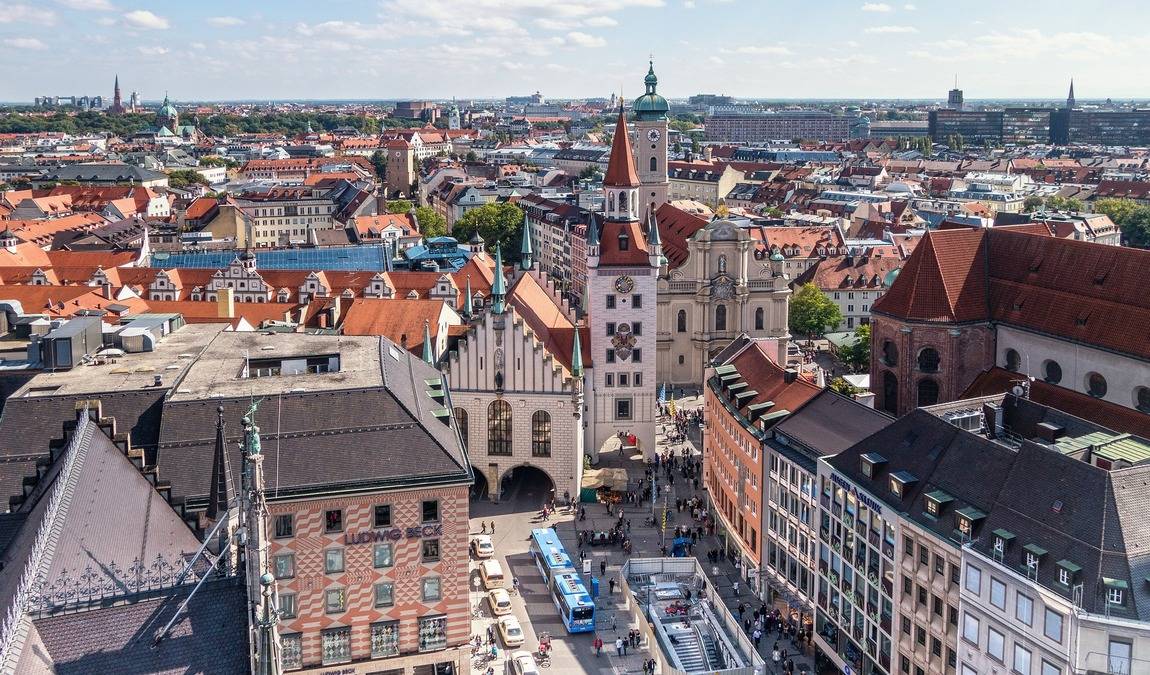
The state's capital is ideal for tourists looking for museums and entertainment. The sightseeing programme is packed and the best amusement parks are within an hour's drive. The CityTourCard helps you save money on museum visits and city tours.
Old cities
Each region of Bavaria has something interesting to offer, but the old towns are usually only visited for a short time. Nuremberg, Augsburg, Regensburg, Ingolstadt and Würzburg are all worth a day trip.
Ski resorts
There is a reason why the Alps are on Bavaria's list of the best places for children to go on holiday. It has everything to instil a love of alpine skiing in a child. Add to that easy transfers, good sightseeing and summer holiday conditions.
Lakes
Where is the best place to go with children if you don't like hot resorts and dream of a quiet holiday? The Bavarian lakes are great in summer. Perhaps the most famous lake in Germany is Königsee in the Berchtesgaden National Park. You might prefer the imposing Lindau on Lake Constance, the Chiemgau thermal baths or the quieter town of Schönau am Königsee on Lake König.
In general, when asked which resorts in Bavaria are suitable for a holiday with children, the answer is 'all of them'. Almost everywhere there are good things to do in high and low season.
Hotels and apartments
Whichever Bavarian resort you choose, you can expect a high standard of service. But it's worth thinking ahead about which type of accommodation is more suitable for your family.
In Bavarian hotels, the list of facilities for children is quite modest, often limited to the provision of a cot and high chair. Mini clubs may be available at ski resorts.
During the warmer months there are more opportunities and activities on the hotel grounds. You will usually have access to a playground, bicycles, toys and trampolines. If you rent an apartment for an independent holiday in Bavaria with children, it will be easier to solve the problem of childcare. This is particularly useful in towns where there are large shops.
 [email protected]
[email protected]


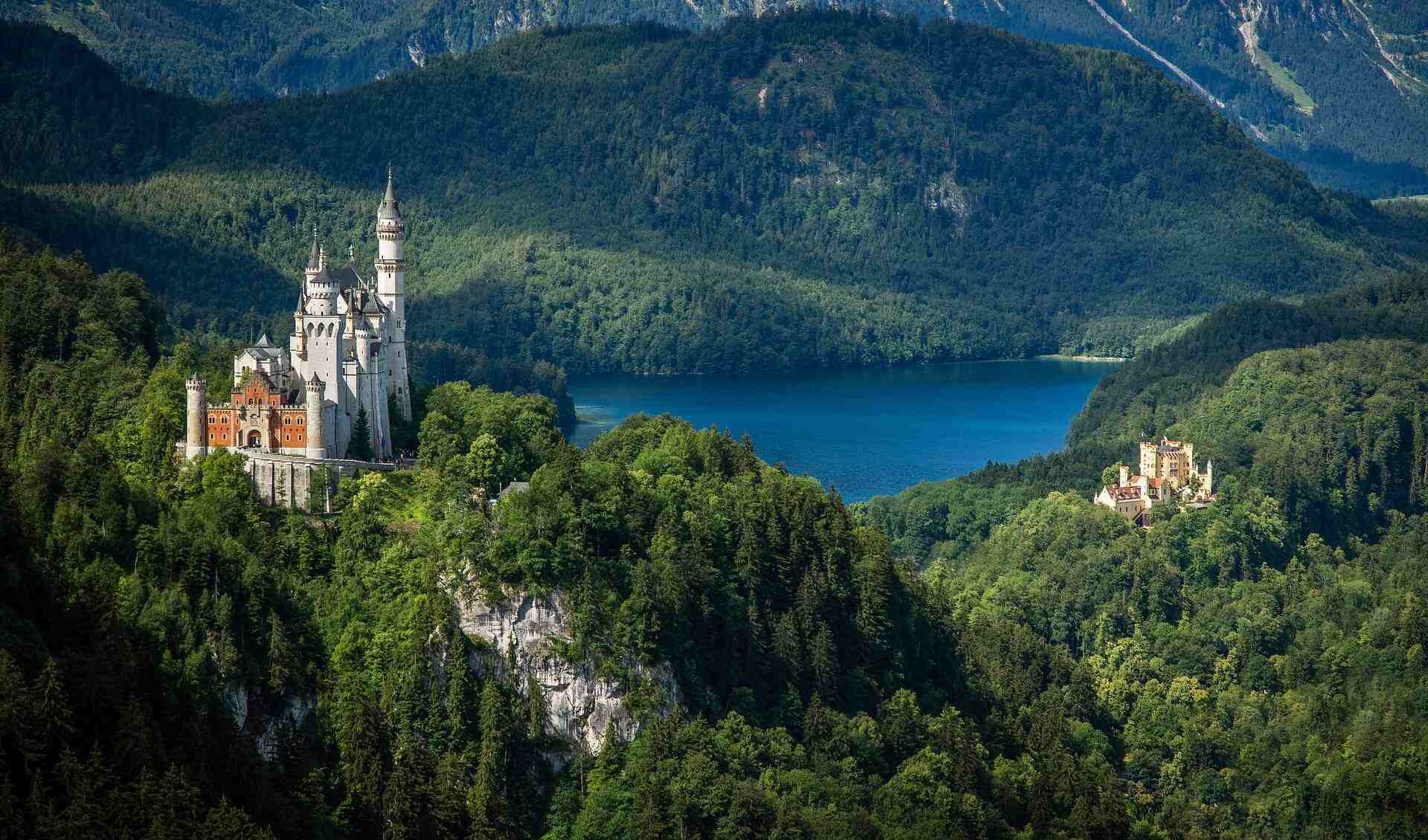
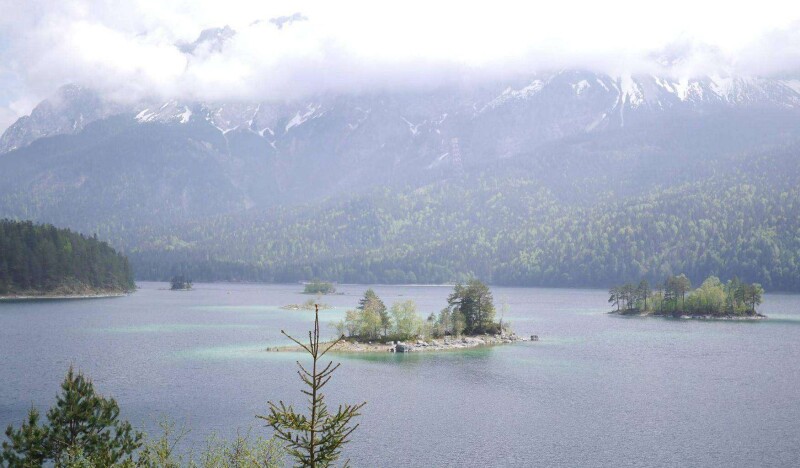


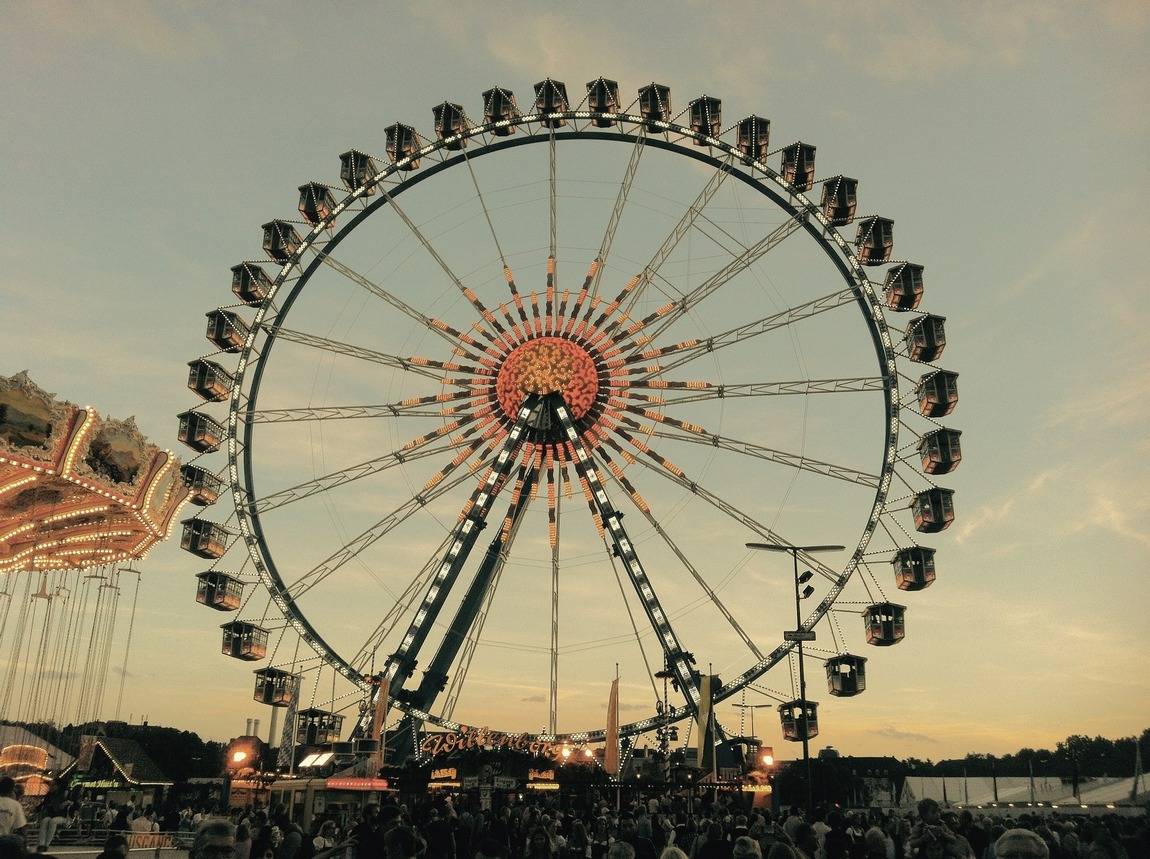
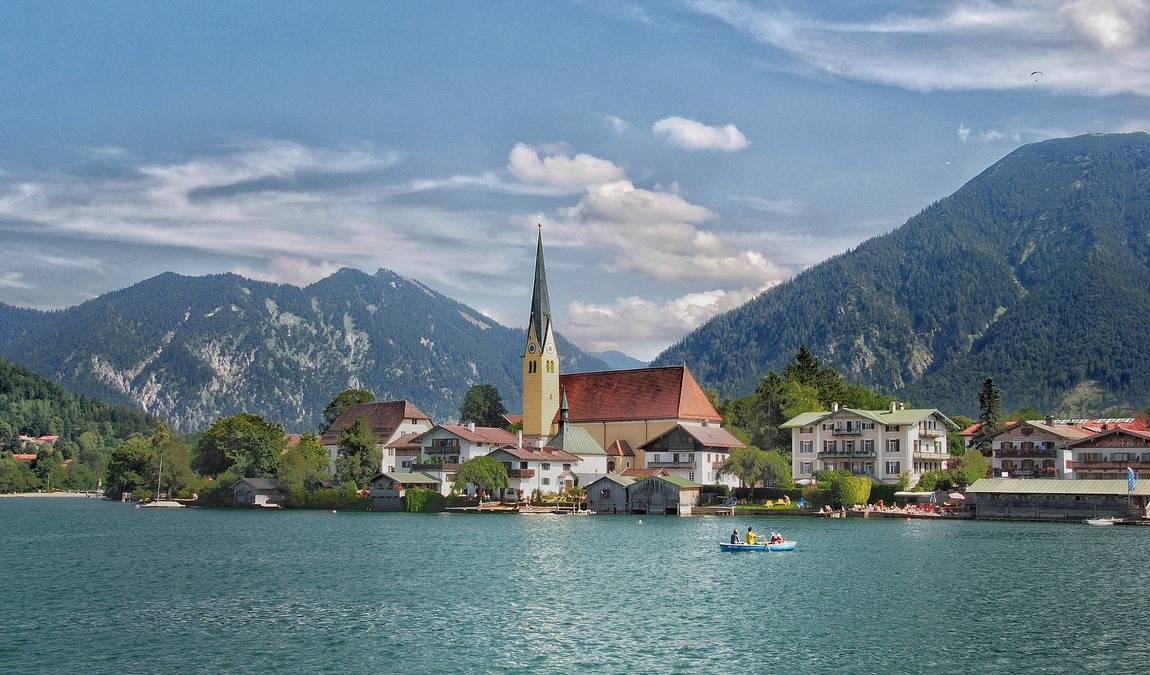
.jpg)

.jpg)
